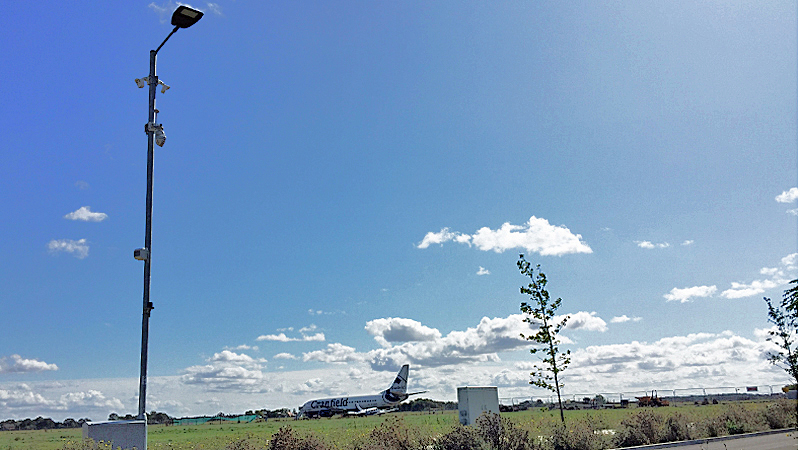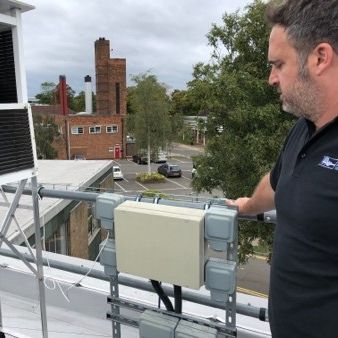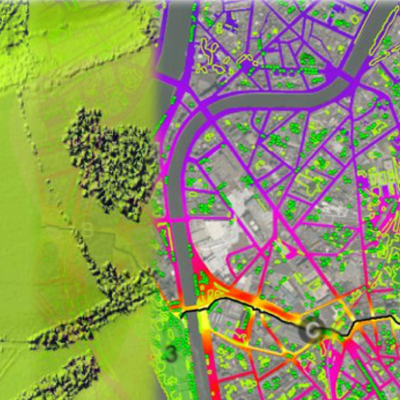Work has started on the Cranfield Urban Observatory, part of the UK’s largest urban research programme, looking at how our cities could be managed and developed in the future for human wellbeing.
At the heart of the Observatory is a £1 million state-of-the-art, campus-wide sensor network which can monitor factors such as air and noise pollution, ecosystem dynamics and resource flows. The data provided by the network will be used to investigate the effects of change and plan healthy and sustainable urban environments.
Cranfield is one of six universities receiving UK Collaboratorium for Research on Infrastructure and Cities (UKCRIC) funding to establish Urban Observatories as platforms for research into future social, economic and environmental infrastructure solutions, technology and governance.
Dr Simon Jude, Senior Lecturer, Centre for Environmental and Agricultural Informatics, said: “We’re delighted to be part of this groundbreaking project which will explore how our cities react to change and assess the impact of urban development on our environment. Hundreds of sensors are now being deployed across our campus. Along with enabling cutting-edge research, data from the Observatory will be an invaluable resource for teaching too.”
Professor Jim Harris, Professor of Environmental Technology, Cranfield Soil and Agrifood Institute, said: “Unlike other city-based Urban Observatories, Cranfield offers a unique combination of infrastructure including our global research airport and other near-industrial scale facilities such as our wastewater treatment works and Multi-User Environment for Autonomous Vehicle Innovation (MUEAVI), all entirely controlled by the University. Our semi-rural, peri-urban location at the centre of the Oxford-Cambridge Arc also provides an unparalleled research and learning opportunity.”
Cranfield Urban Observatory is a key component of Cranfield University’s living laboratory, a testbed for transformative technologies and new approaches to deliver enhanced social, economic and environmental outcomes in urban, transport and infrastructure systems.

About Cranfield University
Cranfield University is a specialist postgraduate university that is a global leader for education and transformational research in technology and management.
Environment and Agrifood at Cranfield
For the past 50 years, Cranfield has been contributing to enhancing natural capital and ensuring that global food systems are more resilient for the future. We are recognised worldwide by industry, government and academe for our research and teaching in plants, soil, water and air.
We believe that environmental problems can be alleviated through technological innovation and risk management.
Cranfield is a key partner in two of the four UK Government-sponsored Agri-tech Centres – Agri-Epi (Agricultural Engineering Precision Innovation Centre) and CHaP (Crop Health and Protection), with over £10 million invested in new infrastructure since 2017.
Our education, research and consultancy is enhanced by our world-class facilities including the National Reference Centre for Soils, which houses the largest collection of its kind in Europe and is recognised as the UK’s definitive source of national soils information, and our big data visualisation suite, which has tools to analyse big data collections including environmental resources from 280 countries/territories worldwide.
In 2017, Cranfield was awarded the Queen’s Anniversary Prize for research and education in large-scale soil and environmental data for the sustainable use of natural resources in the UK and worldwide, the first time in the Prize’s history that an award has been given for soil science.






